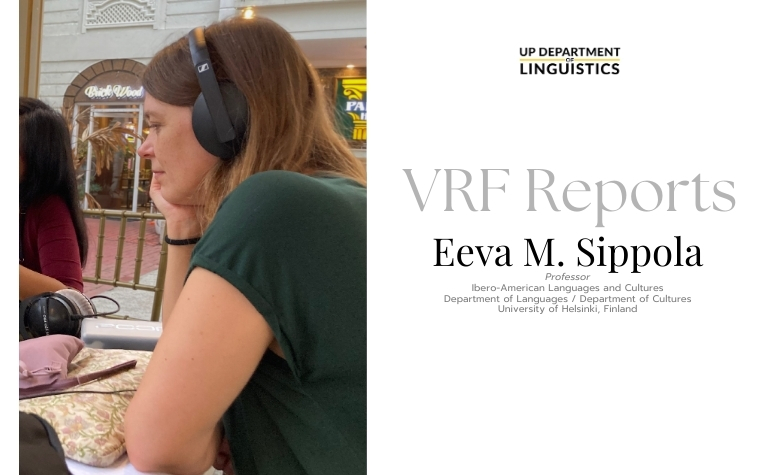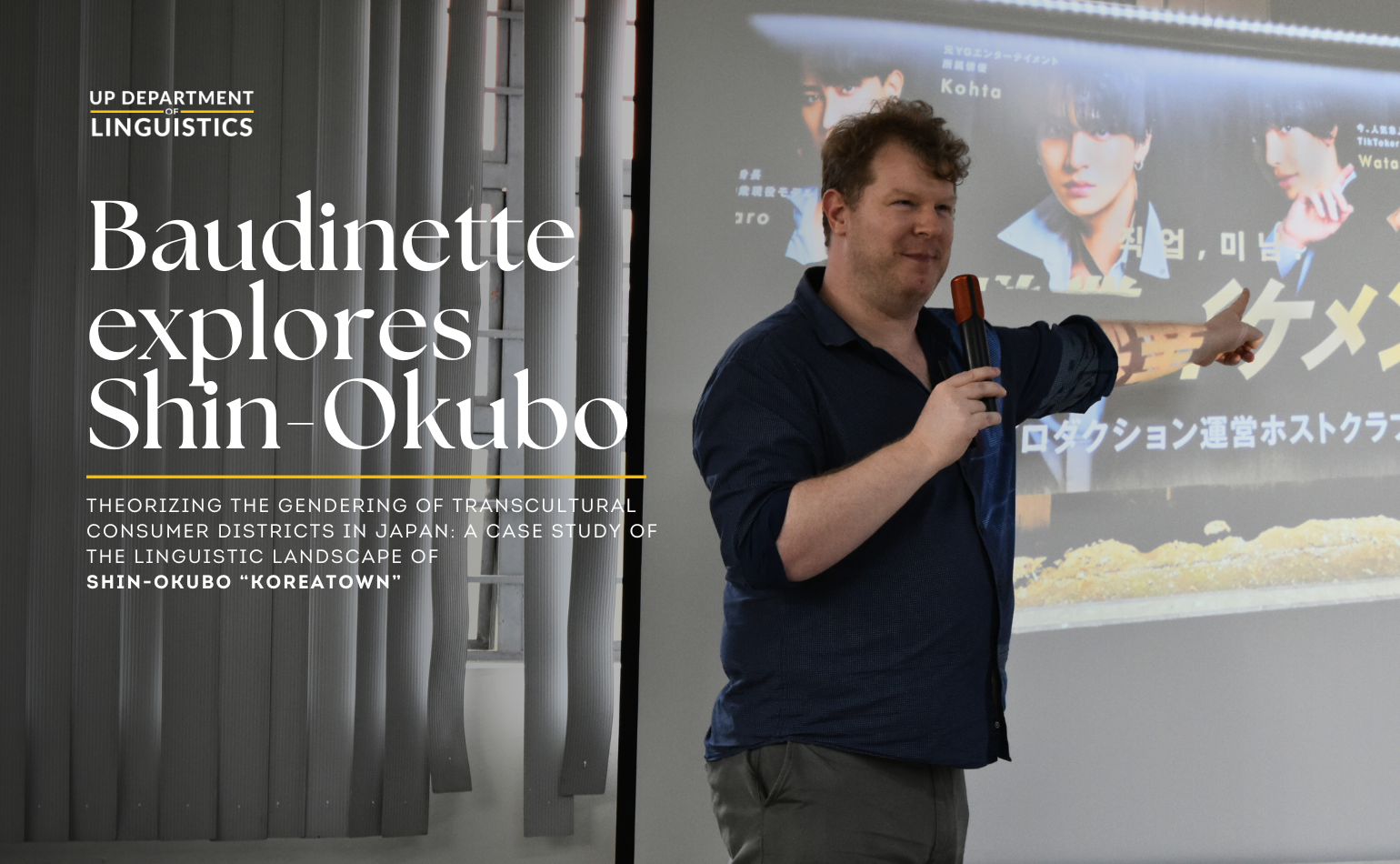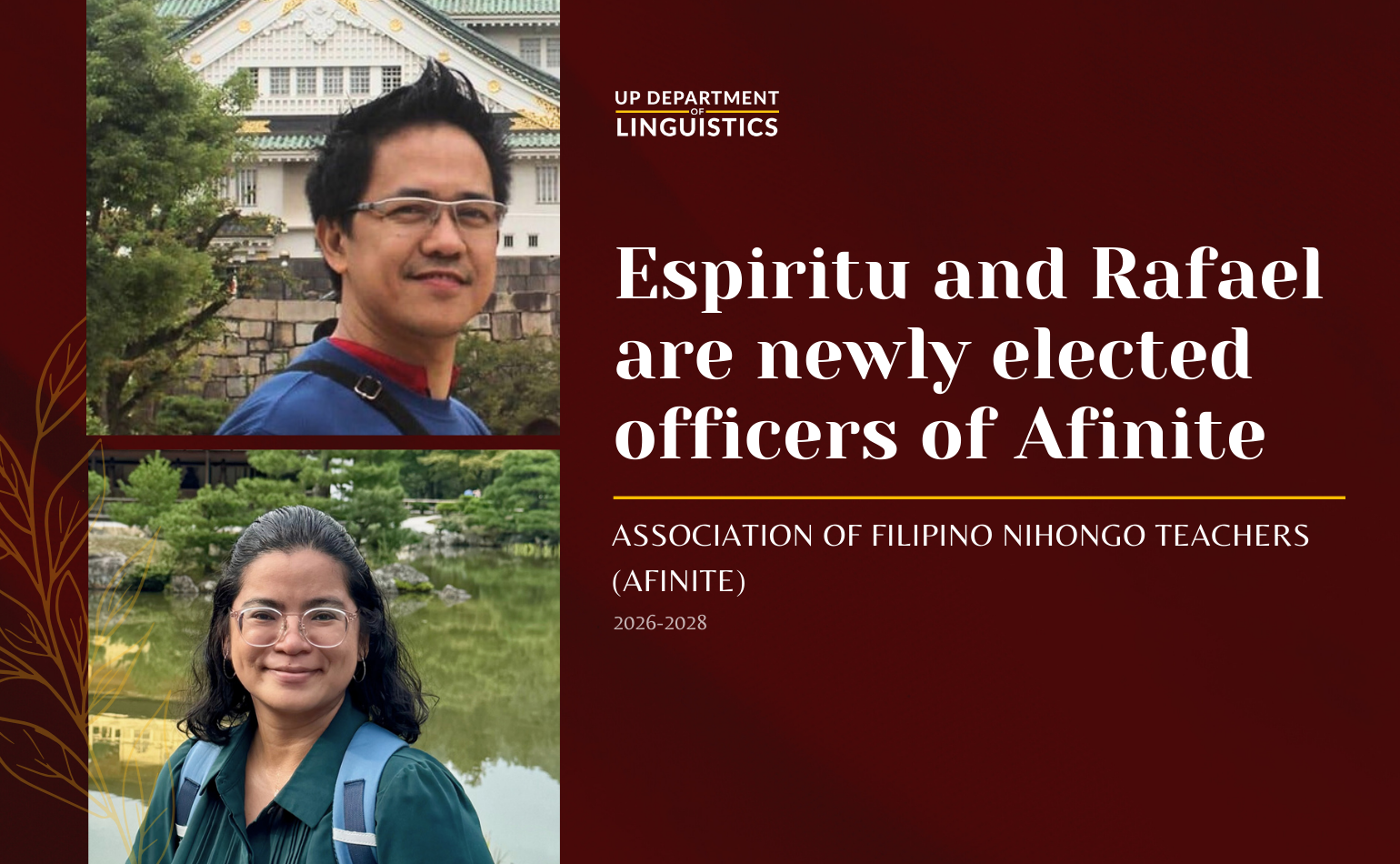
Assistant Professors Francisco Rosario, Jr. and Jay-Ar Igno are in Tokyo, Japan to present their papers at the 2024 International Conference of the Asian Association for Lexicography (ASIALEX), hosted by Toyo University Hakusan Campus from 12 to 14 September.
Rosario’s paper, “Beyond Word Meaning: Using KBBI Online as a Tool for Teaching and Learning Bahasa Indonesia,” focuses on the online version of the Kamus Besar Bahasa Indonesia (KBBI) and how it assists in pedagogy. Meanwhile, Igno will be reading his paper, “Complexities and Challenges with the Use of Online Dictionaries in Korean Language Learning in the University of the Philippines,” which suggests that in foreign language teaching, “in order to minimize the errors of students with the use of online dictionaries and translators, it is better to use those that are not just giving word equivalence, but also have definitions and sample usage.”
Below are their abstracts:
Beyond Word Meaning: Using KBBI Online as a Tool for Teaching and Learning Bahasa Indonesia
This paper will discuss how the online version of Kamus Besar Bahasa Indonesia (KBBI) helps in the teaching and learning of Indonesian by providing, not just the meaning or definition of a word, but also derivational and grammar patterns that guide language learners in forming grammatically acceptable constructions. It will focus on the verbal affixes meN-, meN-…-kan, and men…-i, which, in some instances, may overlap and occur with the same base word. For instance, through affixation, the words meminjam, meminjamkan, and meminjami can be derived from the base word pinjam ‘to borrow’. The argument structure and the meaning of the word change depending on the affix, and while explanations may be covered in grammar lessons, language learners may still struggle with determining which form to use in the actual use of the language. The paper will look into the microstructure of the online version of KBBI and discuss how the information in the dictionary entries can assist Indonesian language learners in forming correct verbal constructions in translation exercises and in writing their essays. It also aims to highlight that while pedagogical and reference grammars of Indonesian help in understanding and familiarizing with the rules of the language, a comprehensive online dictionary like KBBI can be a valuable tool in mastering this aspect of the language and fostering learner autonomy.
Keywords: Indonesian language, Kamus Besar Bahasa Indonesia (KBBI), dictionary microstructure, language teaching and learning
Complexities and Challenges with the Use of Online Dictionaries in Korean Language Learning in the University of the Philippines
Learning a foreign language entails a lot of memory work, particularly vocabulary and expressions. Most students are having difficulty in this aspect of learning, especially the proper usage of particular words in its precise context. But with the aid of dictionaries, students can facilitate memorization and vocabulary building. And through technological revolution, aside from the use of electronic dictionaries, many students utilize online dictionaries because of the availability of mobile phones, different gadgets, and internet connections everywhere. Some of the most popular online dictionaries and translators for Korean language learning in the Philippines are google translate, papago.naver.com, zkorean.com, dic.naver.com, dic.daum.net, among others. With the abovementioned online dictionaries, it is notable that there are complexities and challenges faced with the limitations on the use of these dictionaries, particularly the online translators. For this study, it is observed that most translators and online dictionaries have limitations with the practical application of the words and only some have definitions with proper usage and example sentences. Because of these limitations, most errors the students incur in their homeworks and writing exercises are brought about by the misuse of some words that are out of context. Thus, it is implied that in order to minimize the errors of students with the use of online dictionaries and translators, it is better to use those that are not just giving word equivalence, but also have definitions and sample usage.
Keywords: Online Dictionary, Lexicography, Vocabulary
More information can be found at the conference’s official website, <https://asialex2024.org>.
Published by UP Department of Linguistics



